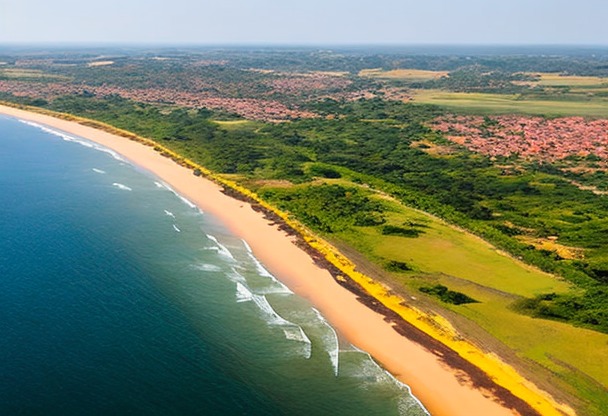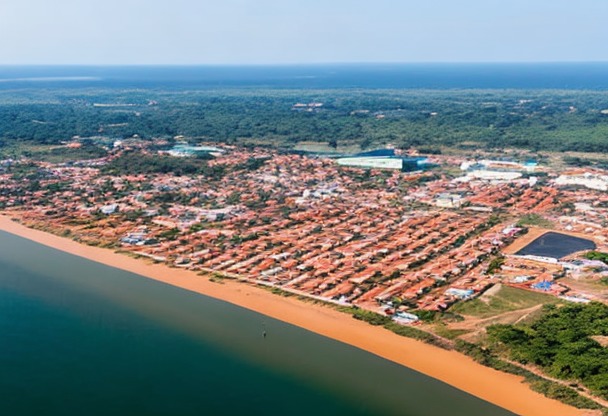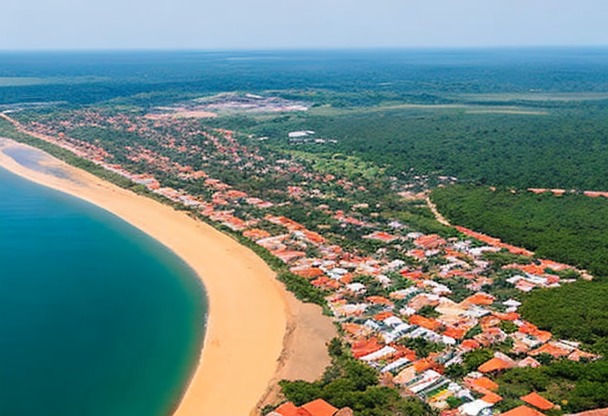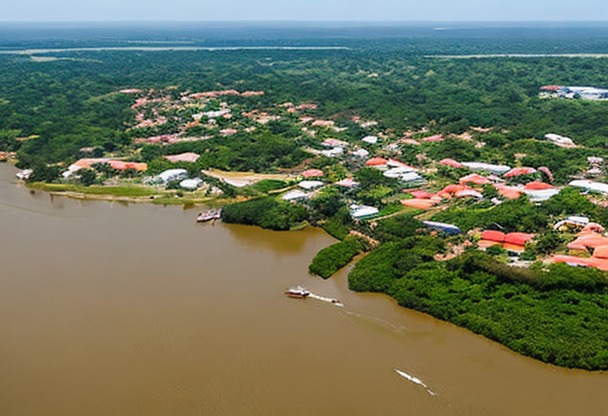Best time to travel to Guinea-Bissau
Choosing the right period for your trip to Guinea-Bissau can make all the difference. It's important to consider climatic elements, seasonal events and busy tourist periods to maximize your travel experience.

Location
Climate
Low and high season periods
Guinea-Bissau has two main seasons: the dry season and the rainy season. Each has its advantages and disadvantages for visitors.Dry season (November-April)
There dry season is generally considered the best time to visit Guinea-Bissau, as the weather is cooler and less humid than at other times of the year. Average temperatures are between 24°C and 32°C, with cool, pleasant nights. During this period, you can take full advantage of tourist attractions, beaches and outdoor activities without having to worry about rain or hot weather.Rainy season (May-October)
There rainy seasonAs for the weather, it can make some parts of the country less accessible due to flooding and muddy roads. However, if you're prepared for the occasional downpour, you can enjoy lush, green scenery and reduced prices on accommodation and activities. Temperatures during this season range from 23°C to 33°C, with high humidity.Major cultural events
Guinea-Bissau also offers a rich calendar of cultural events throughout the year. Some of these events may make you want to plan your trip around them, while others are simply worth knowing about to avoid crowds and temporary closures of tourist attractions.Bijagos Festival (October-November)
This unique celebration takes place every year in the UNESCO Bijagos archipelago. Visit Bijagos Festival showcases the traditional culture and art of the archipelago, with exhibitions, workshops, concerts and theatrical performances. It's a great opportunity to learn more about the local culture and interact with the locals.Bissau Carnival (February-March)
Inspired by the famous Brazilian carnival, the Bissau Carnival is a colorful and lively event that attracts thousands of visitors and participants. Festivities include costume parades, traditional dances and open-air concerts. It's an ideal time to discover the energy and joie de vivre of the Guinean people.National holiday (September 24)
THE September 24Guinea-Bissau celebrates its national holiday, marking the independence it gained from Portugal in 1973. Official ceremonies, military parades and cultural events take place throughout this important day. Visitors are invited to join in the festivities and enjoy the country's patriotic atmosphere.Public holidays and closures
In addition to major cultural events, it's important to consider national holidays and potential closures when planning your trip to Guinea-Bissau. Here are some notable public holidays:- January 1st : New Year's Day
- March 8 : International Women's Day
- May 1st : Labour Day
- June 25 : Eid el-Fitr (date may vary according to lunar calendar)
- August 20 : Eid al-Adha (date may vary according to lunar calendar)
- November 2 : Day of the Dead
- December 25 : Christmas
Insurance

Your credit card does not cover you in all situations, that is whyIt is essential to take out insurance before you leave to avoid any unpleasant surprises. If you need to see a doctor or be hospitalized, in some countries, medical costs are very high and you will then find yourself having to pay several thousand euros.
Our partner Chapka Insurance proposes the contract CAP ASSISTANCE 24/24 with many essential guarantees.


Flights

Your flight has been cancelled or delayed ?
You may be eligible for a compensation of up to €600 ! For this, lawyers are responsible for handling your claim with the airline and are only paid when the reimbursement is effective.
In conclusion, no financial risk for you, only advantages!
Statistics on immigration to Guinea-Bissau
As in many other countries, immigration to Guinea-Bissau is marked by constant population movements. The reasons for immigration are diverse, ranging from job-seeking and family reunification to study and asylum applications. According to available data, it is estimated that around 20,000 immigrants are currently living in Guinea-Bissau, representing around 1% of the country's total population. These immigrants are mainly from Senegal, Nigeria, Mauritania and Mali.Migration trends in Guinea-Bissau
The number of migrants in Guinea-Bissau has risen steadily in recent years. One of the main reasons for this is the country's geographical location, which serves as a "gateway" to the rest of the world. bridge between West Africa and Europe. Many migrants transit through Guinea-Bissau on their way to European countries in search of a better life. However, it is important to emphasize that the majority of immigrants to Guinea-Bissau are from neighboring countriesThey come mainly for economic reasons, or to escape conflict situations in their countries of origin. The main countries of origin of immigrants to Guinea-Bissau are :- THE Senegal
- THE Nigeria
- There Mauritania
- THE Mali
Most popular visas in Guinea-Bissau
Visas are the main means of access to Guinean territory for foreign nationals. There are several types of visa available to enter Guinea-Bissau, some of which are particularly popular:Tourist visa
The tourist visa is undoubtedly the most popular type of visa in Guinea-Bissau. Valid for 90 days, this visa enables foreign travelers to discover the country's cultural and natural riches. To promote tourism in Guinea-Bissau, the authorities have recently simplified the procedures for obtaining this visa for nationals of certain countries.Business Visa
Business visas are also very much in demand in Guinea-Bissau, not least because of the country's economic potential in sectors such as agriculture, fishing and energy. This visa allows foreign professionals to carry out commercial activities on Guinean territory for up to 90 days.Work visa
The work visa is intended for foreign nationals wishing to work in Guinea-Bissau. Although less in demand than tourist and business visas, this type of visa is nonetheless popular with migrants seeking professional opportunities in the country.International tourism figures for Guinea-Bissau
Tourism in Guinea-Bissau is a fast-growing sector, thanks in particular to the efforts made by the authorities to promote the country as a tourist destination. Tourism figures bear witness to this positive trend:- Number of international tourist arrivals In 2019, Guinea-Bissau welcomed almost 40,000 international tourists, an increase of almost 20% on the previous year.
- Tourism revenue tourism revenues now account for a significant share of the country's GDP, with more than US$25 million recorded in 2019.
Main countries of origin for tourists to Guinea-Bissau
Tourists visiting Guinea-Bissau mainly come from European and African countries. Visit most represented countries of origin among the visitors are :- Portugal
- La France
- Spain
- Senegal
- Nigeria


